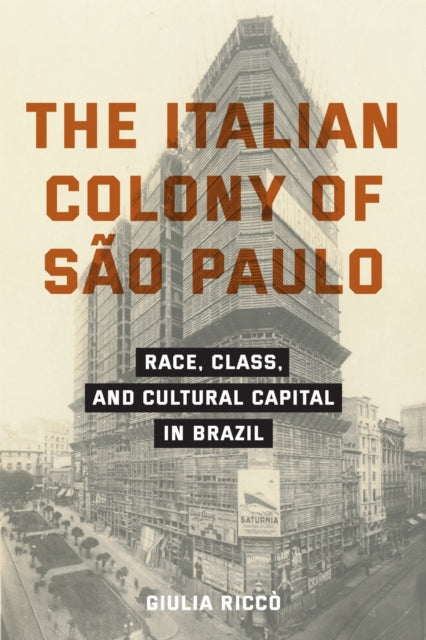
The Italian Colony of Sao Paulo : Race, Class, and Cultural Capital in Brazil
Giulia Ricco
Published -
Genre - Anthologies (non-poetry)
Format - Paperback
WINNER, 2024 ALDO AND JEANNE SCAGLIONE PUBLICATION AWARD FOR A MANUSCRIPT IN ITALIAN LITERARY STUDIES, MODERN LANGUAGES ASSOCIATIONIntroduces a way to study migration that privileges literary analysis over and against sociological data and insists on the importance of culture in the production of political identities This book argues that Italians first became racialized as white in Sao Paulo, Brazil, at the turn of the twentieth century. Whereas Italians in the United States struggled with xenophobia and were often not fully acknowledged as white, in Sao Paulo, due to a series of social, economic, and cultural fac-tors, Italians became closely associated with ideas of whiteness, modernization, and civilization. This book brings to light how the overlooked experiences of Italians in Brazil complicate conventional narratives about the racial ambiguity and oppression of Italians in the Americas, on the one hand, and the conflation of Italians with cultural and economic backwardness in Europe, on the other. In the book, close readings of a wide array of texts - the travel writings of Gina Lombroso Ferrero, the short stories of Ant�nio de Alc�ntara Machado, the columns of Jos� Correia Leite, the political essays of Miguel Reale, and the memoirs of Z�lia Gattai - trace a "New World Italian discourse," or the overlapping narratives about Italian racial, economic, and cultural superiority that constructed and maintained Italians' status as a model minority in Sao Paulo. These discursive practices represent essential antecedents to the racial nationalism that reared its ugly head in Italy throughout the twentieth century and remain central to contemporary debates about national identity in the Italian public sphere. The Italian Colony of Sao Paulo: Race, Class, and Cultural Capital in Brazil /i>is available from the publisher on an open-access basis.
Choose options
